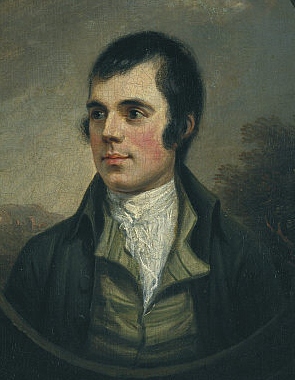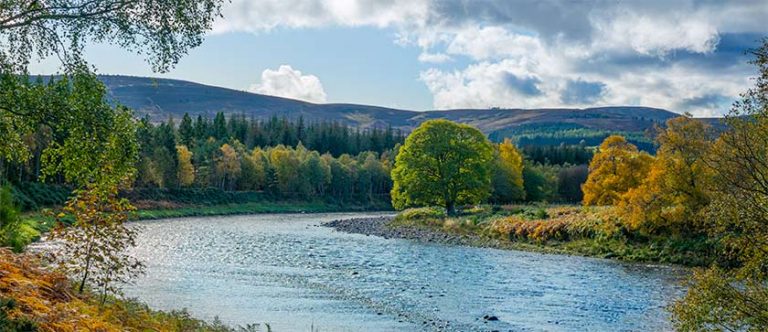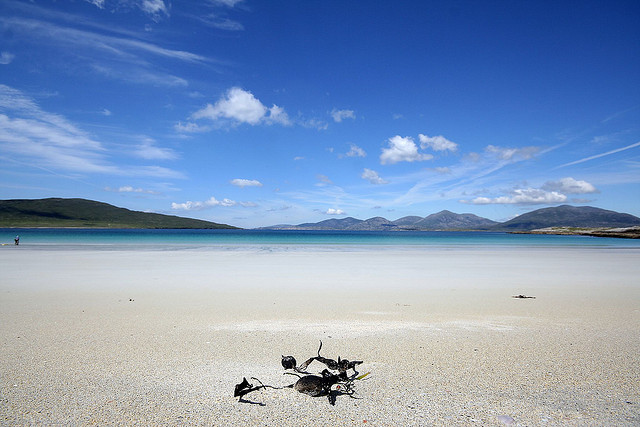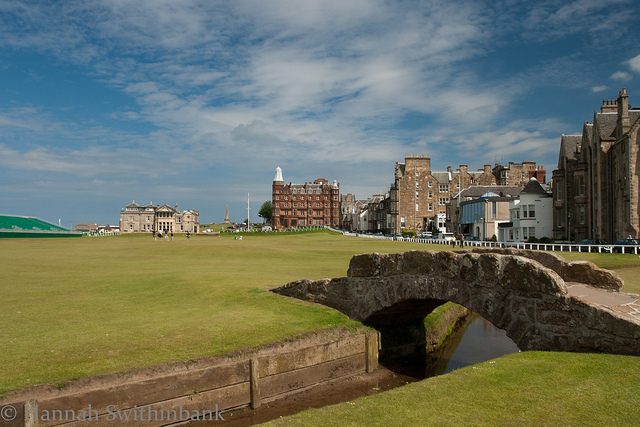Robert Burns – the Scottish Bard
Scotland’s Poet – Robert Burns

Robert Burns painted by Alexander Naysmith. Scottish National Portrait Gallery.
Born two miles south of Ayr, in a cottage built by his father (now the Burns Cottage Museum), Robert was the eldest of seven children.
He had little regular education and received much of his learning from his father together with occasional tutoring from other people. By the time he completed his education at the age of 15 he had been taught writing, arithmetic, geography, history, grammar, Latin, French and mathematics. This is all the more amazing as he grew up in a poor household and laboured on the farms that his father tenanted, at 15 he was the principal labourer on the farm.
During the summer of 1774 one of his co-workers was a local girl, Nelly Kilpatrick and she inspired his first attempts at poetry. Burns’ father was not a successful farm and he moved the family through several hard tenancies. After his father’s death, Robert and his brother Gilbert struggled on with farming with little success of their own.
This lead to financial difficulties and Burns accepted the offer, from a friend, to emigrate to Jamaica and work as a bookkeeper on a slave plantation. as he lacked the funds for his passage a friend suggested that he should publish his poems as a way of raising the money. He approached a printer from Kilmarnock and the first edition of his poems was published and sold for three shillings. Success and fame followed and he soon became more widely known. Having postponed his trip to Jamaica, the receipt of a letter to a friend from a Dr Blacklock, a well regarded critic, suggesting an enlarged second volume was enough to change the direction of his travel and he headed instead to Edinburgh. Burns spent the next couple of years in the capital, attending aristocratic gatherings and publishing a further volume of his poetry.
In 1788 he returned to Ayrshire and to farming but this time hedged his bets by training as an excise man in case the farming turned to failure. He started work with Customs and Excise in 1789 and finally gave up agriculture in 1791.
By 1975 he was beginning to lose both friends and health. His political views and his support for the French Revolution upset and alienated many. The damage to his health from his early days on the farm were also impacting on his life. He died in summer 1796 aged just 37.
Throughout his short life Robert Burns produced a formidable body of work, now known the world over. He is regarded a pioneer of the Romantic movement. Each year, on January 25, his life and work is celebrated worldwide with numerous Burns Suppers. The style and format is usually consistent and includes the arrival of the haggis, led by a piper and subsequent reading of his ode ‘Address to a Haggis‘. After the meal and a series of toasts the comes the toast to ‘the immortal memory’ and an overview of his life and work.
So the next time you sing ‘Auld Lang Syne‘ as you welcome in the New Year think of the farmer’s son who reached out to the world.











